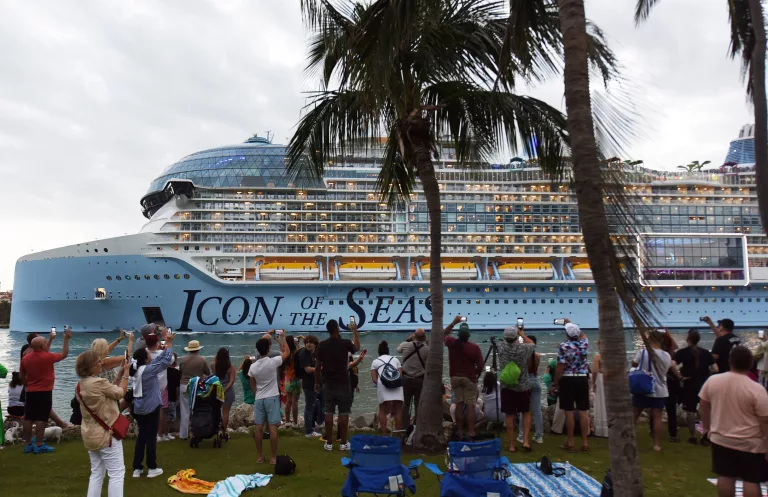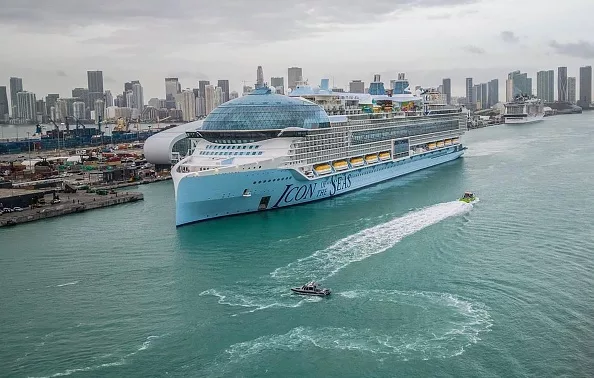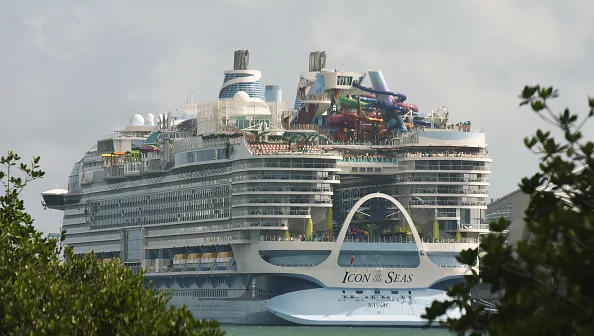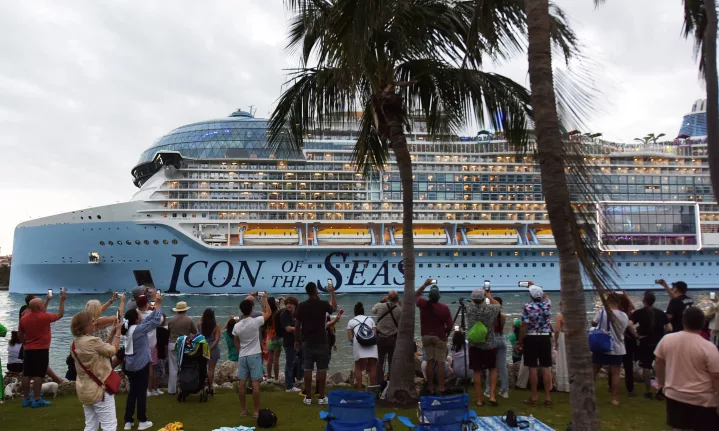In a grand departure from the bustling port of Miami, the Icon of the Seas, the world’s largest cruise ship, embarked on its maiden voyage amidst much fanfare. Owned by the Royal Caribbean Group, this colossal vessel, spanning an impressive 365 meters and boasting 20 decks, promises an extravagant experience for its maximum capacity of 7,600 passengers as it embarks on a seven-day island-hopping journey through the Caribbean.

However, as the Icon of the Seas sets sail, concerns about its environmental impact, particularly its methane emissions, loom large. The vessel, powered by liquefied natural gas (LNG), has raised alarms among environmentalists who fear that harmful methane may leak into the atmosphere.
Constructed at a shipyard in Turku, Finland, this Bahamas-registered behemoth is not short on luxury. With seven swimming pools, six water slides, and a lavish array of over 40 restaurants, bars, and lounges, it comes with a staggering $2 billion price tag.
While LNG is considered a cleaner alternative to traditional marine fuels like fuel oil, there is a risk of gas leakage, potentially releasing methane into the air. Methane, a greenhouse gas much more potent than carbon dioxide, poses a significant threat to the environment.
Bryan Comer, the director of the Marine Programme at the International Council on Clean Transportation (ICCT), expressed his concerns, stating, “It’s a step in the wrong direction.” According to the ICCT’s recent report, LNG-fueled ships emit higher methane levels than current regulations assume, with estimates suggesting over 120% more life-cycle greenhouse gas emissions than marine gas oil.

Royal Caribbean’s Icon of the Seas, the world’s largest cruise ship, heads to the dock during its first arrival into PortMiami on Jan. 10, 2024. (Pedro Portal/El Nuevo Herald/Tribune News Service via Getty Images)
Royal Caribbean contends that the Icon of the Seas surpasses energy efficiency standards set by the International Maritime Organization for modern ships by 24%. Despite these assurances, environmentalists stress the urgency of addressing methane emissions to combat global warming.
The cruise industry, identified as one of the fastest-growing sectors of tourism, contributed a staggering $75 billion to the global economy in 2021, according to the Cruise Lines International Association. This industry’s appeal, particularly among young people, underscores the need for sustainable practices.
On a lighter note, the Icon of the Seas garnered attention during its naming ceremony, where Argentine football icon Lionel Messi, currently playing for Inter Miami, participated. Messi placed a football on a specially built stand, triggering the traditional “good luck” breaking of a champagne bottle against the vessel’s bow, adding a touch of glamour to this grand departure.

















